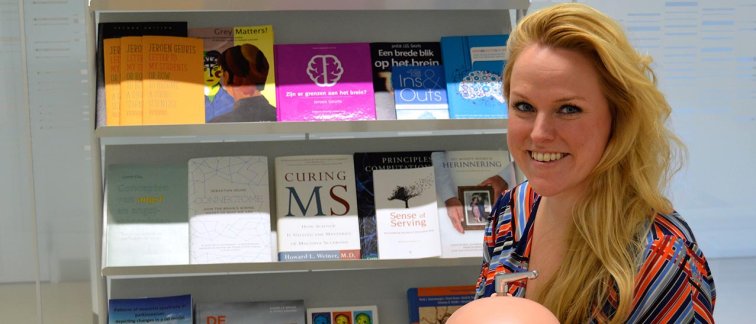The Dutch Research Council supports the work of this interdisciplinary team that will bring together scientific and societal breakthroughs within reach. Hanneke Hulst and her colleagues are awarded 1,6 million euros.
Postponing cognitive decline and preventing early unemployment
Cognitive decline is one of the symptoms of MS, affecting up to 70% of the (young) people with MS. When patients with MS report cognitive and work-related problems, these problems are often too advanced for treatment. Intervening sooner rather than later is crucial, which requires a paradigm shift from symptom management towards prevention of symptoms. By focusing on prevention, quality of life and participation in society will be enhanced.
Hanneke Hulst: “Working together on the application with people with MS, the sport school, MS-coaches, and scientists with different backgrounds was extremely inspiring and motivating. We are extremely grateful that we can continue and deepen our collaboration in the coming years and that we will be able to make a difference for people with MS.”
Don’t be late consortium
A large group of researchers from different organizations throughout The Netherlands is involved. The consortium with the name ‘Don’t be late’ is led by neuroscientist Hanneke Hulst working for the MS Center Amsterdam of Amsterdam UMC. The other organizations participating are: Vrije Universiteit Amsterdam, Leiden University, Sanofi Genzyme, Merck bv, Personal Fitness Nederland, MS vereniging Nederland, St. Anthonius Hospital Nieuwegein, Hospital Rivierenland Tiel, Medisch Spectrum Twente Enschede, Stichting MS Research, Nationaal MS Fonds, Nederlandse Vereniging voor Verzekeringsgeneeskunde, Nederlandse Vereniging voor Arbeids- en bedrijfsgeneeskunde, MSweb.nl.
Read more about the Dutch Research Agenda (NWA) or on the relevance for MS patients (in Dutch).

